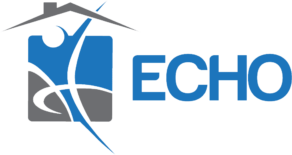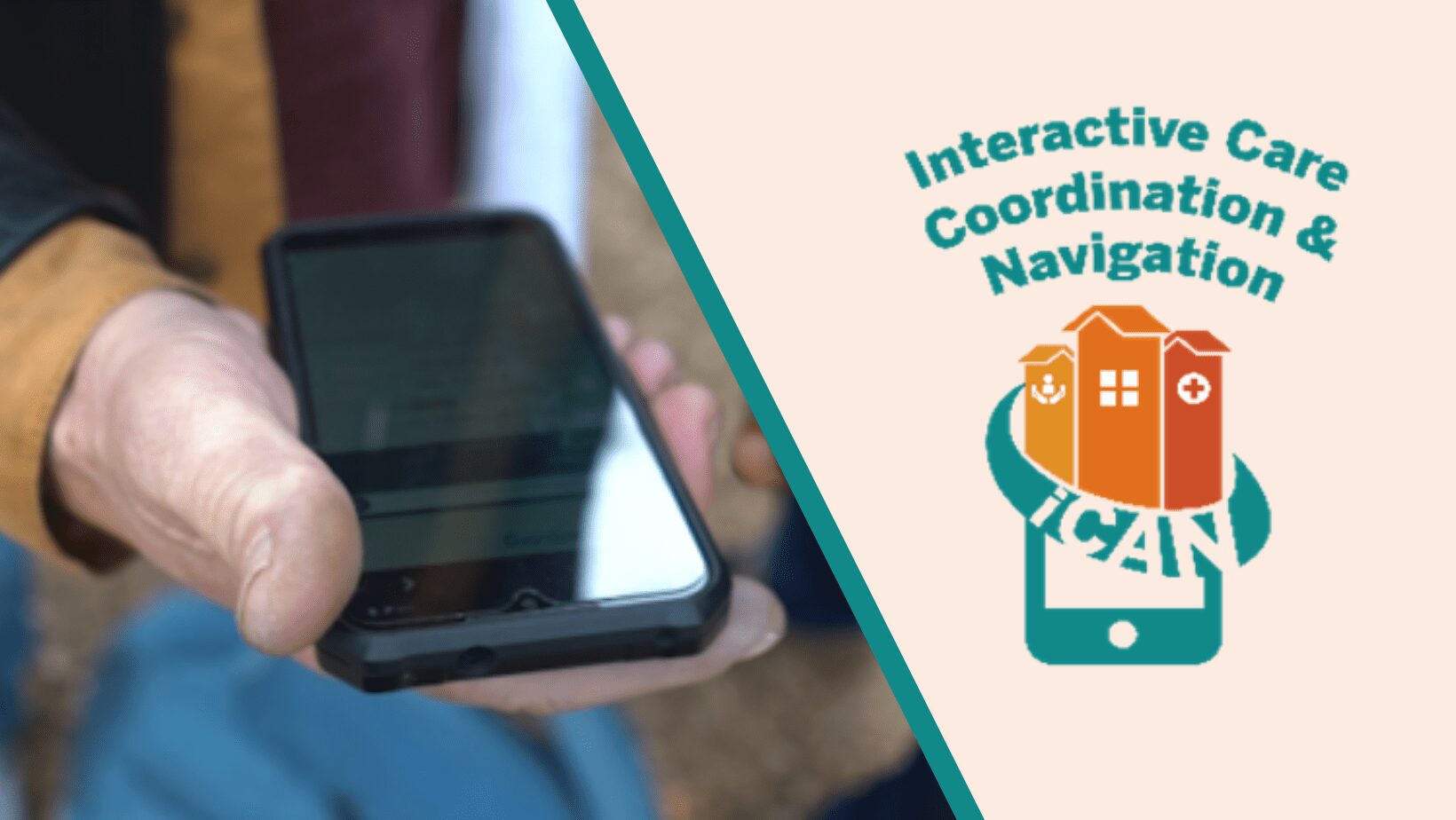Fiercely Focused | iCAN
AUSTIN — It’s hard for many of us to imagine life without a smartphone. Tracking appointments, finding directions, looking up information, calling for help — all are made much more difficult without a device.
“Most people think that people experiencing homelessness, everybody has cell phones, which is not true,” says Holly Ann Edwards. And even if you do have one, Edwards says, it’s difficult to keep the phone functional. “Takes you about all day just to try to find somewhere that don’t kick you out to even charge your phone.”
Edwards is a member of the Community Advisory Board for a research project studying how getting phones to more people living outside impacts their lives. The project, titled Interactive Care Coordination and Navigation (iCAN), is a collaboration between the University of Texas College of Pharmacy, Sunrise Homeless Navigation Center, Trinity Center, Charlie Center, and connxus (formerly Integrated Care Collaboration), the local health information exchange. The iCAN team is Fiercely Focused on ending homelessness.
Note: Portions of the content in this presentation are funded under grant number 1R18 HS027750-01 from the Agency for Healthcare Research and Quality (AHRQ), U.S. Department of Health and Human Services (HHS). The authors are solely responsible for the presentation contents, findings, and conclusions, which do not necessarily represent the views of AHRQ. The audience should not interpret any statement in this report as an official position of AHRQ or of HHS.
“A phone is really like a basic need at this point,” says Dr. Leticia R. Moczygemba, iCAN’s principle investigator with the UT College of Pharmacy. She saw through her research over the last 14 years that the lack of resources to meet this basic need kept people living outside from effectively managing their care. “We feel very passionately that every single person experiencing homelessness should have access to a phone.”
“We’re always invested in trying to figure out how to lower barriers,” says Mark Hilbelink, iCAN’s co-investigator. “And when you’re serving someone on a phone, it really lowers the barrier because you can serve them wherever they’re at.”
The team’s prior work that involved a 4-month pilot study and an analysis of exit interviews from the pilot led to the design of a randomized, controlled trial to test the effectiveness of recruiting people experiencing homelessness to participate from the three resource centers listed above. “We’re recruiting for two groups of folks that we’re going to be watching over a six month period,” explains Catherine D. Allen, an iCAN postdoctoral fellow at the UT College of Pharmacy. “One group we give a cell phone to that’s loaded with all kinds of great resources, and then we have a control group.” All participants receive financial compensation for their time spent meeting with the study team and monthly bus passes during the time they are in the study.
“We want to see if having a cell phone and access to a case manager help reduce emergency room and hospital visits, as well as other health outcomes that that are associated with homelessness,” adds iCAN graduate research assistant James O. Baffoe. Other outcomes they’re looking at include medication adherence, social support, depression symptoms, and attainment of social needs (e.g., housing, employment).
Central to the work is the team’s commitment to building the phone’s resource list based on the needs and knowledge of people with firsthand experience of being unhoused in Austin. Discussions and meetings centered the voices of people with lived experience. “We, from a research perspective, can design interventions that are attentive to people’s voices and people’s experiences, but can also combine the resources we know of,” says iCAN research assistance Teresa Medellin.
For the participants enrolled in the intervention group, they receive a smartphone that is loaded with a contact list featuring service providers, food pantries, healthcare, and many other kinds of resources people may need. Pre-loaded apps like FindHelp allow participants to search for more resources, and every phone comes with a digital, auto-renewing 31-day Capital Metro bus pass. Automated text messages go to study participants as well, reminding them about upcoming appointments, to refill and take medications, and other regular check-ins. Participants can also text directly with the iCAN case manager, Emily Seales.
“Oftentimes I will refer to the phone as a tool to help people navigate their care on their own or navigate their resources,” Seales says.
“Everything you need is there,” Edwards, who spent nearly three decades living outside, says. “It’s understandable; it’s really simple. It’s manageable.”
The team continues to recruit participants, and they’ve seen some promising early results from folks who are nearing the end of their six-month intervention. Moczygemba says the successes belong to the entire community.
“Even just the basic having the phone and being able to have resources that everyone else does,” she says, “I mean, to me, that’s success.”


